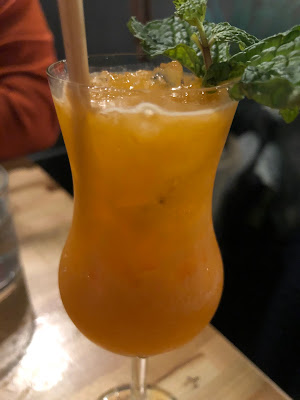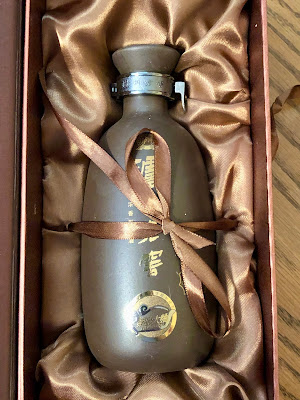There's National Chardonnay Day and National Cabernet Sauvignon Day, as well as wine holidays celebrating Merlot, Moscato, Champagne and much more. Plus, there are Drink Days celebrating everything from Rum to Egg Nog, Margaritas to Mai Tais. The basic idea behind such days is to promote a grape, wine, beer, spirit or cocktail, and savvy marketers take the opportunity to highlight and push their products. However, do we really need all of these wine/drink holidays?
For the more popular choices, like Chardonnay and Cabernet Sauvignon, I don't think we need a special day to showcase these grapes. Nearly every wine consumer knows about those grapes. So, as they're already hugely popular, we should be shining a spotlight on grapes that are more worthy of attention, grapes which are less popular or less known.
For the more popular choices, like Chardonnay and Cabernet Sauvignon, I don't think we need a special day to showcase these grapes. Nearly every wine consumer knows about those grapes. So, as they're already hugely popular, we should be shining a spotlight on grapes that are more worthy of attention, grapes which are less popular or less known.
There are plenty of under appreciated grapes and wine types, such as Assyrtiko, Rkatsiteli, Pošip, Baga, Mavrud, Manzanilla Sherry and more, which would benefit greatly from their own special day. There are other alcohols worthy of more attention too, from Sake to Shochu. These niche wines and spirits need the publicity, to boost their sales and recognition.
I would much rather see days celebrating the drink underdogs, helping to gain them recognition and new fans. I want people to broaden their palates, and taste something new for them. They need to be enticed to step out of their comfort zone. For example, Sake is still vastly under appreciated in the U.S. so having a day that celebrates and promotes it makes sense. Did you know International Sake Day, which is celebrated each year on October 1, has existed since 1978, nearly 50 years? That makes it far older than most of the other wine and drink holidays.
On Saturday, August 9, we should celebrate World Baijiu Day, a holiday created by Jim Boyce, who runs the nightlife blog Beijing Boyce and wine blog Grape Wall of China. The intent of this holiday is to raise awareness of Baijiu, to highlight its wonders beyond the borders of China. Even though Baijiu is the most popular spirit in the world, most Americans know little, if anything about it. As I've said before, Baijiu seems to be the Durian fruit of the spirits world, both having a reputation for funkiness which turns off some people, while others become fervent fans. It's a fascinating beverage, with much diversity of flavor and taste, and I strongly encourage everyone to seek it out and sample some of its wonders.
When is the last time you saw a drinks writer pen an article about Baijiu? It's a rarity, indicating that more attention needs to be paid to this spirit. Not enough people are writing and talking about this unique beverage, despite its intriguing history, production methods, and customs. We need to change this and World Baijiu Day is an important way to help spread the word, and maybe entice more writers to talk about Baijiu, and for more consumers to sample Baijiu in cocktails on its own.
Over the years, I've written sixteen articles about Baijiu, covering a diverse selection of topics, from Baijiu reviews to a the detailed explanation of its production methods. This is a great place to start your education about Baijiu.
Baijiu: The Durian Fruit Of The Spirits World (Part 1)
Baijiu: Its Unique Production Process (Part 2)
Baijiu: Drinking Etiquette & Some Reviews (Part 3)
Baijiu: Cocktails, Boston & World Baijiu Day (Part 4)
Baijiu: Food Pairings (Part 5)
Vinn Bajiu: Made in Portland
Baijiu: The Essential Guide To Chinese Spirits by Derek Sandhaus
World Baijiu Day: August 9
Taizi Baijiu: A New Zealand Treasure
Historical Tidbits About Baijiu, The World's Most Popular Spirit (Part 1)
Historical Tidbits About Baijiu, The World's Most Popular Spirit (Part 2)
In celebration of World Baijiu Day, there will be events held all over the world, from Beijing to Auckland, Dublin to Stockholm. In the U.S., there will be Baijiu events in Baltimore, New York City, and Chicago. In the Boston area, Sumiao Hunan Kitchen, in Kendall Square, Cambridge, will once again celebrate World Baijiu Day, offering two new Baijiu cocktails for August. In addition, the food at Sumiao is excellent, and they are celebrating their Eighth Anniversary this summer.
As Sumiao's website states: "A Baijiu Bash is Brewing — Only at Sumiao! This August, we’re proud to partner with World Baijiu to bring the spirit of China’s most iconic liquor to Kendall Square — just in time for World Baijiu Day (8/9). Whether you’re a curious first-timer or a baijiu believer, these East-meets-West creations offer smoky, citrusy, and tropical twists on tradition. Cheers to sipping something unexpected."
There two new Baiju cocktails include:
● Eastern Sun: Smoky baijiu and mezcal meet juicy passion fruit and lime for a sunrise-inspired sip.
● Golden Dynasty: Elegant and zesty, this Earl Grey–washed baijiu cocktail glows with honeyed cognac and citrusy charm.
Baijiu is also becoming more readily available at liquor shops in the U.S., though previously you might not have even realized it existed. I also just learned of a distillery in Connecticut which is producing Baijiu! Baijiu may be hugely popular in Asia but it needs much greater exposure in the rest of the world, including in the U.S. It is a unique and delicious spirit and well worth seeking out. This is a Drink Day that I wholeheartedly support and hope that everyone else takes this opportunity to acquaint themselves with Baijiu.
Expand your palate and try something different and more unique. Drink some Baijiu and celebrate World Baijiu Day!



































